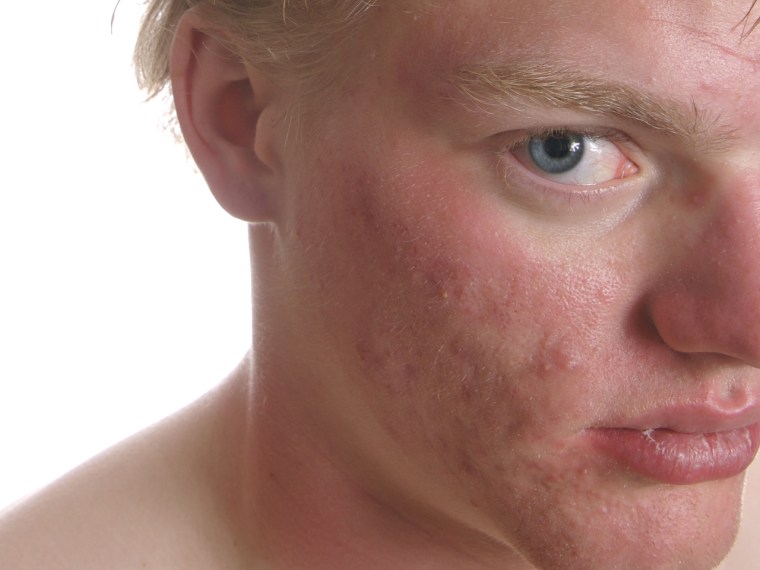In a finding that teenagers all over the world will cheer, researchers say they have found a strain of “good” bacteria that may keep acne at bay.
Pimple-free volunteers have skin loaded with the friendly germ – and it’s a cousin of the nasty, zit-causing bacteria.
It might be possible to treat acne sufferers with the good strain and save them the agony of spotty skin, they report in the Journal of Investigative Dermatology.
"This P. [Propionibacterium] acnes strain may protect the skin, much like yogurt's live bacteria help defend the gut from harmful bugs," said Huiying Li, an assistant professor of molecular and medical pharmacology at the University of California Los Angeles David Geffen School of Medicine.
"Our next step will be to investigate whether a probiotic cream can block bad bacteria from invading the skin and prevent pimples before they start,” she added. "We hope to apply our findings to develop new strategies that stop blemishes before they start, and enable dermatologists to customize treatment to each patient's unique cocktail of skin bacteria."
It’s not so far out. In recent years, scientists have discovered that people are completely colonized with bacteria that help digest food, protect from eczema, and even that distinguish one person’s belly button lint from another’s.
This so-called microbiome may affect your tendency to gain weight, and most recently, doctors have used transplants of helpful bacteria to cure patients with a deadly intestinal bug called Clostridium difficile.
So just as people are encouraged to eat yogurt to replace healthy bacteria after they take antibiotics, perhaps helpful skin bacteria could replace pimple cream.
Li’s team used skin-pore strips to take samples of the Propionibacterium acnes bacteria from the noses of 49 people with acne and 52 clear-skinned volunteers.
These particular bugs are found all over the body – on the skin, in the mouth, the eyes and the intestines. The UCLA researchers found they come in different strains, however. They sequenced the genes of 66 different strains.
"We learned that not all acne bacteria trigger pimples — one strain actually may help keep skin healthy," Li said in a statement.
"Two unique strains of P. acnes appeared in one out of five volunteers with acne but rarely occurred in clear-skinned people,” added Dr. Noah Craft, a dermatologist at UCLA who also worked on the study.
And then they made the promising find. "We were extremely excited to uncover a third strain of P. acnes that's common in healthy skin yet rarely found when acne is present," said Li. "We suspect that this strain contains a natural defense mechanism that enables it to recognize attackers and destroy them before they infect the bacterial cell."
Acne, which affects as many as 90 percent of teens and up to half of adults, is caused when pores become first blocked and then infected.
Doctors have shown it’s not caused by dirty skin – in fact overwashing can aggravate it in some cases. Nor is it caused by greasy food or chocolate, although hormones seem to be involved in production of the oily sebum than can block pores.
Treatments such as antibiotics and benzoyl peroxide aim to kill the bacteria, while salicylic acid dries the skin out and retinoic acid and isotretinoin are designed make the skin shed more quickly and reduce blockages. But none works perfectly, and the prescription drug Accutane can cause very serious side-effects and has been pulled from the market.
In 2010, a team at the University of Pittsburgh said they found evidence that bacteria-killing viruses called bacteriophages might fight acne.
Related:
